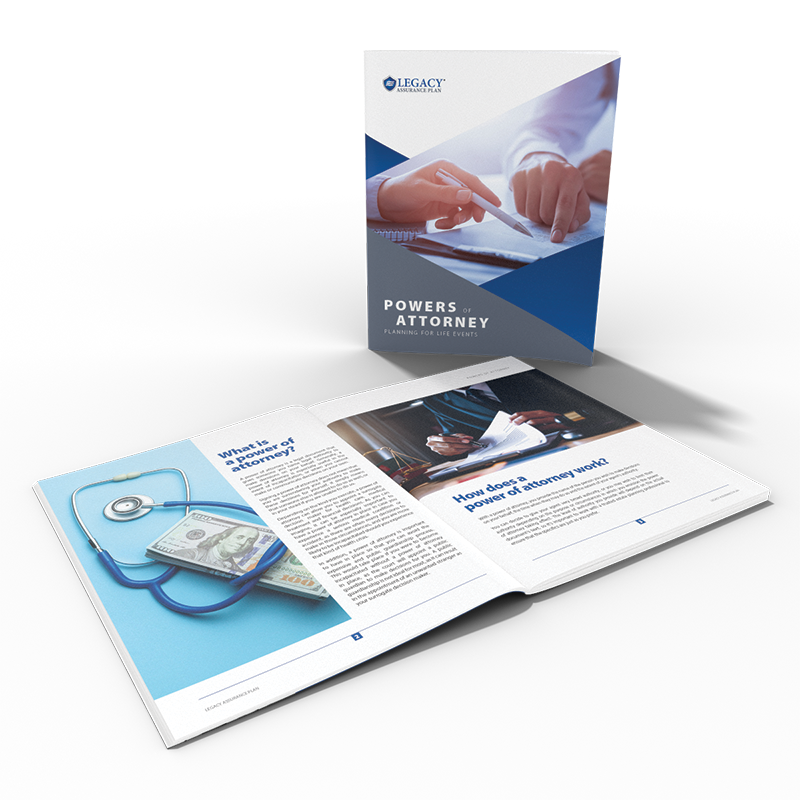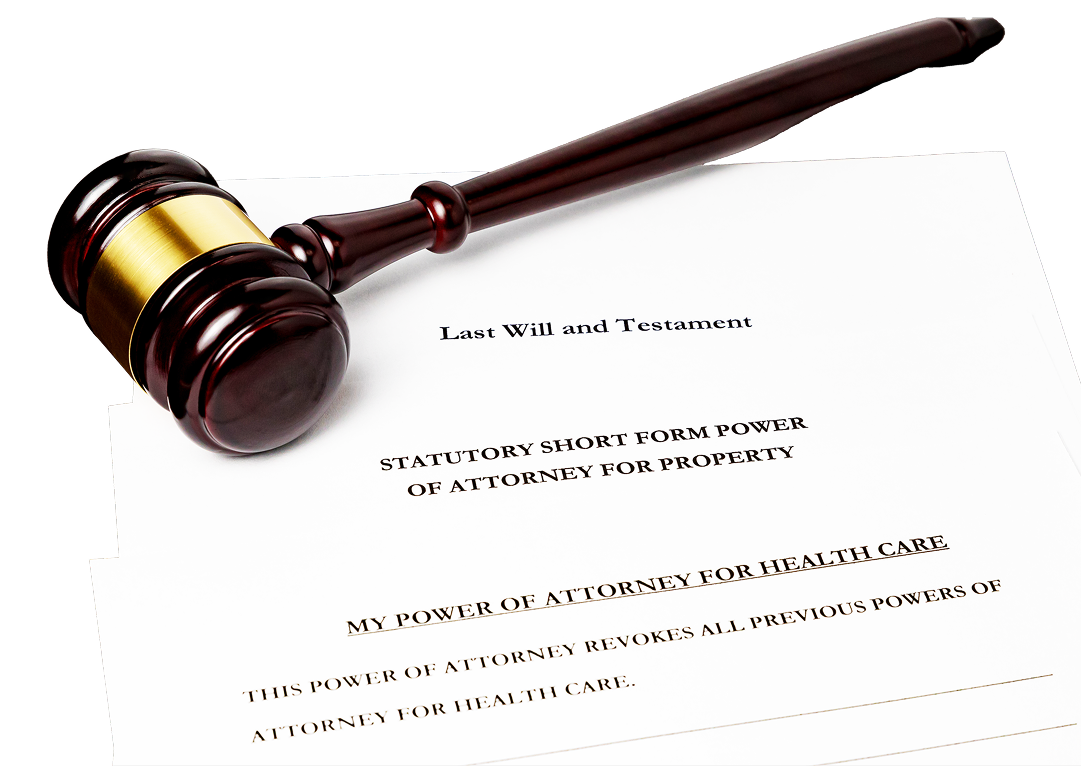Understanding Power of Attorney
Purpose, Benefits, and Why It's Essential for Estate Planning
Discover the purpose and importance of power of attorney in estate planning. Learn about different types, key benefits, and how this crucial legal document protects your future.

What Is a Power of Attorney?
A power of attorney represents one of the most important legal documents you can create to protect yourself and your loved ones. This powerful estate planning tool grants someone you trust the authority to make decisions on your behalf when you cannot do so yourself. Understanding the purpose of power of attorney and recognizing its importance in comprehensive estate planning can provide peace of mind and essential protection for your future.
What Is the Purpose of a Power of Attorney?
The primary purpose of a power of attorney is to ensure that someone you trust can step in and handle your affairs if you become unable to do so. Whether due to illness, injury, or mental incapacity, life circumstances can suddenly leave you unable to manage financial transactions, make healthcare decisions, or handle legal matters. A power of attorney document legally designates a trusted individual, called your agent or attorney-in-fact, to act on your behalf in these situations.
This legal arrangement serves as a crucial safety net, preventing court intervention and ensuring your wishes are carried out according to your preferences. Without a power of attorney, your family may face costly and time-consuming guardianship proceedings to gain the authority to help you during a crisis.

The Importance of Power of Attorney in Estate Planning
Power of attorney documents hold tremendous importance within your overall estate planning strategy. Unlike a will, which only takes effect after death, a power of attorney provides protection while you're still alive but unable to act for yourself. This distinction makes it an indispensable component of comprehensive estate planning.
The importance of power of attorney becomes especially clear during medical emergencies or progressive illnesses like dementia. These situations often develop gradually or strike suddenly, leaving little time for family members to secure legal authority to help. Having a power of attorney already in place eliminates delays and ensures seamless care and financial management during difficult times.

Key Benefits of Having a Power of Attorney
Avoiding Court Intervention
One of the most significant benefits of power of attorney is preventing the need for court-appointed guardianship. When you become incapacitated without a power of attorney, your family must petition the court to appoint a guardian or conservator. This process can take weeks or months, involve substantial legal fees, and may result in someone you wouldn't have chosen making decisions about your life.
Ensuring Continuity of Care
A properly executed power of attorney ensures uninterrupted management of your affairs. Your designated agent can immediately step in to pay bills, manage investments, file insurance claims, and handle other financial responsibilities. This continuity prevents late fees, missed opportunities, and financial complications that could arise from delayed decision-making.
Maintaining Privacy
Court proceedings for guardianship become part of the public record, exposing your personal and financial information to public scrutiny. A power of attorney keeps your affairs private, allowing your agent to handle matters discreetly without court supervision or public disclosure.
Preserving Family Relationships
By clearly designating who will make decisions on your behalf, a power of attorney can prevent family conflicts that often arise during crises. When multiple family members disagree about care decisions or financial management, having a pre-appointed agent eliminates confusion and reduces stress during already difficult times.
Types of Power of Attorney
Understanding the different types of power of attorney helps you choose the right option for your specific needs and circumstances.
General Power of Attorney grants broad authority to your agent to handle virtually all of your financial and legal affairs. This comprehensive document typically covers banking, real estate transactions, tax matters, and business operations. However, general powers of attorney typically become invalid if you become mentally incapacitated.
Limited or Special Power of Attorney grants authority for specific tasks or time periods. You might use this type to authorize someone to handle a real estate closing while you're traveling or manage specific business transactions.
Durable Power of Attorney remains effective even after you become mentally incapacitated, making it the most valuable type for estate planning purposes. The "durable" designation ensures your agent can continue acting on your behalf when you need help most.
Healthcare Power of Attorney specifically addresses medical decisions and treatment choices. This document, sometimes called a healthcare proxy, allows your agent to work with doctors and make treatment decisions according to your wishes when you cannot communicate them yourself.


Choosing the Right Agent
Selecting your agent represents one of the most critical decisions in creating a power of attorney. Your agent should be someone you trust completely, who understands your values and preferences, and who possesses the skills necessary to manage your affairs effectively. Consider choosing someone who lives nearby, as they may need to handle local matters or visit financial institutions in person.
Many people name their spouse as their primary agent, with an adult child or trusted sibling as a successor agent. This arrangement provides backup coverage if your first choice becomes unable or unwilling to serve. Avoid naming co-agents unless absolutely necessary, as this arrangement can create delays and conflicts when quick decisions are needed.
Advantages of Power of Attorney for Different Life Stages
The advantages of power of attorney extend across all life stages, making it valuable for young adults as well as seniors. Young professionals who travel frequently for work benefit from having someone authorized to handle emergencies at home. Parents of minor children can ensure seamless care arrangements if both parents become temporarily incapacitated.
For middle-aged individuals managing complex financial portfolios or business interests, a power of attorney provides essential backup management. Senior citizens particularly benefit from the security of knowing trusted family members can step in as cognitive abilities may decline with age.
Military personnel and their families find power of attorney especially valuable during deployments, when communication may be limited and immediate decision-making becomes crucial for family welfare.
Why Power of Attorney Matters More Than Ever
Modern life complexity makes power of attorney more important than ever before. Digital banking, online investment accounts, and electronic bill payment systems require specific authorization for others to access and manage. Healthcare decisions have become increasingly complex, with numerous treatment options and advance directive considerations requiring knowledgeable advocacy.
The recent global health challenges have highlighted how quickly circumstances can change, making advance planning essential for everyone, regardless of age or health status. A power of attorney provides the flexibility and authority needed to navigate unexpected situations while protecting your interests and honoring your preferences.
Creating a power of attorney document demonstrates wisdom and responsibility toward your family's future security. This essential estate planning tool ensures that your carefully built life and financial structure remain protected, even when you cannot personally oversee every detail. By understanding the purpose, importance, and benefits of power of attorney, you can make informed decisions that safeguard your legacy and provide peace of mind for years to come.







